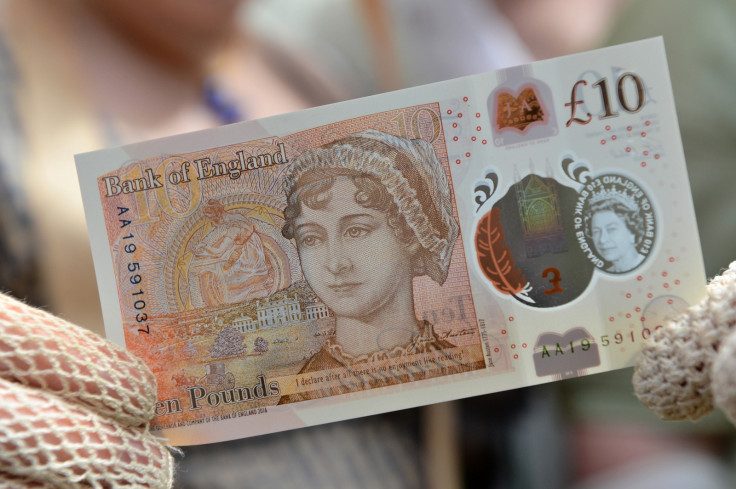Bank of England reveals deadline day for swapping old £10 notes
Old £10 paper banknote featuring Charles Darwin will be officially withdrawn from circulation on 1 March next year.

The Bank of England has announced that the old £10 paper banknote featuring Charles Darwin will be officially withdrawn from circulation on 1 March next year.
Britons in possession of the old note will need to spend it or deposit it before that date as it ceases to be legal tender from 2 March.
Retailers, banks and other institutions can refuse to accept the old-style notes beyond the deadline, although it will still be possible for shoppers to exchange them for the new £10 note featuring Jane Austen at the Bank of England.
The new note is made of polymer and was introduced into circulation on 14 September.
The note, which is slightly smaller than its paper predecessor, includes a series of raised dots in the top left-hand corner to help visually-impaired users to identify the denomination of the note.
A portrait of Austen is on the back of the polymer note, accompanied by a line from her best-known work, Pride and Prejudice: "I declare after all there is no enjoyment like reading!"
Beneath this image is Godmersham Park House, the estate owned by Austen's brother.
The foil image over the see-through window is Winchester Cathedral, where Austen was buried in 1817. This year marks the 200th anniversary of her death.
The Bank of England said 55% of £10 notes in circulation were the new plastic notes as of 3 October and that there were still 359 million of the old tenners in circulation.
The central bank has pushed for the adoption of polymer notes, arguing they are more durable than paper notes and are harder to counterfeit.
However, the new notes have drawn criticism from vegans and religious groups across England and Wales for containing traces of tallow, an animal by-product of beef or mutton fat.
In Scotland, polymer notes have been in circulation since 2015, while the first plastic notes were issued in Northern Ireland in 1999.






